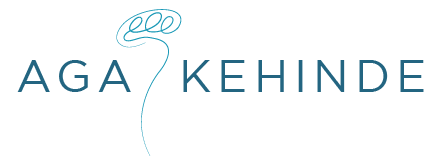Cancer. Choosing NOT to suffer.
When experiencing cancer, suffering does not need to be the mode we immediately default to. In fact, suffering needn’t be present at all
I had a beautiful coaching session recently with my client; a friend that I have been supporting for a few years now. We met due to her previous medical emergency, when we were able to build a strong ability to deal with the unexpected. I used multiple energy healing approaches to help enable her to make peace with her past, and process her own (and ancestral) trauma, which without a doubt had massively impacted her at that time. We concluded our work with a feeling of empowerment and carefully crafted ability to radically accept the situation she found herself in with love, attention and complete surrender.
Today, life has thrown another experience her way, but this time the threat is stronger. Her recent cancer diagnosis brings with it the reality of her own mortality, and her world has frozen in time. It’s like that: time stops, your senses disappear, voices get muddled, vision tunnelled, and you are momentarily suspended between life and death. Personally, I believe you actually look her in the eye (I like to imagine death being female – it’s my Polish language heritage). When the clock eventually starts ticking again, nothing is like it was before, and life’s meaning has completely changed.
This is when we find we are all so different. However, suffering does not need be the default mode for any of us.
My friend - who also has experience of supporting people with cancer - told me, we often think we have some kind of agreement (she’s not sure with whom) that life will go the way we imagine, and when it doesn’t we get frustrated and angry, searching for someone to hold accountable. And so, some of us will try doing anything to reconnect to the life we led before our diagnosis; becoming angry with life, ourselves, the past, the future. We will fight and scream, and often search for the responsible part that broke the ‘contract’ we have with yourself, life, God.
Then there are those who simply sit with their new reality. They look at it with curiosity and an openness, and trust that their life has changed direction. That they need to simply adapt. No contract or promise has been broken, and that they have no right to complain about it, life is simply what it is, and they will do their best to live it.
From my experience of working with clients in this situation, I often witness this fear that almost always creeps up, a need to start planning out the immediate future based on past experiences and beliefs.
My friend cried, “Aga this journey will make me suffer,” a statement that stung me, like a blade, it cut me open and exposed a sudden need to reconnect her to the here and now, to take her away from planning for the future that in her mind was already full of pain and suffering.
I asked, ‘’Why do you think this new journey will make you suffer?’’ The question threw her. After all, she was already intent on her new reality. A restricted thinking pattern of obviously facing a new struggle. (As if she can predict the future?)
And then the light came through. She talked of her experience a few days before, when during a physically painful medical procedure, she managed to guide her mind to a place when she felt safe and calm. She managed to go through this procedure with no real sense of suffering. Yes, of course there was physical discomfort, but the point is, the suffering was not there. We both agreed this is the default mode that she should be moving forward with.
Coaching in cancer is not about goal setting (okay, it is sometimes), but it is actually more about gaining awareness of your own personal default mode; the subconscious one that you are not in charge of changing.
Coaching in cancer is about being able to help you adapt. To enable you to find acceptance that this is your current life and that you will navigate what you are going through the best way you can; with perspective.
